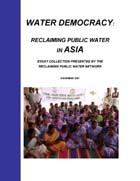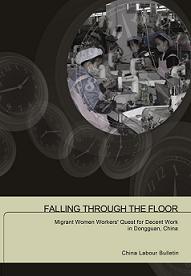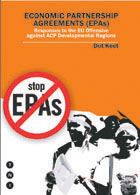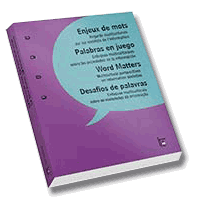
Le portail rinoceros d’informations sur les initiatives citoyennes pour la construction d’un autre monde a été intégré au nouveau site Ritimo pour une recherche simplifiée et élargie.
Ce site (http://www.rinoceros.org/) constitue une archive des articles publiés avant 2008 qui n'ont pas été transférés.
Le projet rinoceros n’a pas disparu, il continue de vivre pour valoriser les points de vue des acteurs associatifs dans le monde dans le site Ritimo.
Pages 1 | 2 | 3 | 4 | 5 | 6 | 7 | 8 | 9
Green and Saffron: Hindu Nationalism and Indian Environmental Politics
By Mukul SHARMA, Orient Blackswan, December 2011, 300 pages
This book examines contemporary environmental issues and movements in independent India on the one hand, and the development of Hindu conservative ideology and politics on the other. It includes the first thorough investigation of Anna Hazare’s movement in Maharashtra.
Mukul Sharma argues that these two social currents—environmental conservation and Hindu politics—have forged bonds which reveal the hijacking of environmentalism by conservative and retrograde worldviews. This, he says, constitutes a major aspect of hinterland political life which neither academics nor journalists have seriously analysed. Environmentalism and politics cannot be seen as separate from each other, for environmental issues are being defined in new ways by an anti-secular form of Hinduism. In turn, Hindu ideologues are gaining mileage for their ideology by espousing major environmental projects.
Anna Hazare’s impact is studied in detail through a careful field investigation of his environmental initiative in Ralegan Siddhi. Sunderlal Bahuguna’s opposition to the Tehri Dam in the Garhwal Himalaya is outlined with great anthropological subtlety. And the regeneration of Vrindavan’s urban and riverine hygiene by internationally funded NGOs is subjected to a historical scrutiny that includes an examination of how Lord Krishna has been redefined as the great god of conservation.
Sharma discusses Nazi Germany and fascist appropriations of environmentalism in Europe to contextualize Hindu conservative nationalists within a larger universe. By pinpointing the communal and authoritarian discourses within some of the new social movements, his book alters the way in which we look at everyday life in the subcontinent. For, says Sharma, at stake in this intermeshing of environmental Green and Hindu Saffron is nothing less than the way Indians understand their humanity.
Water democracy, reclaiming public water in Asia
> TNI / Focus on the Global South, December 2007, 65 pages, PDF
"Water Democracy: Reclaiming Public Water in Asia" is a compilation of 19 new essays written by civil society activists, trade unionists and other water practitioners. The essays show that the privatization wave has far from come to a halt in Asia: from India and Indonesia to Japan and South Korea (where public water delivery has been very successful), neoliberal governments promote privatisation as the way forward. At the same time the essay collection also highlights a very different trend: democratisation and other progressive reforms of public water management are gaining ground in Asia, providing an attractive alternative to privatisation.
Falling through the Floor
> China Labour Bulletin Research Series: No.2
According to the International Labour Organization, the concept of decent work lies at the heart of any fair and equitable national development strategy, and the standards for defining it should rise as economies grow and prosper. Moreover, decent work goals depend upon the maintenance of a minimum "floor" level of workers’ livelihood - defined as respect for fundamental labour rights and the provision of sufficient work, income and basic security. Local minimum wages provide one concrete indicator of the requisite floor level; workers’ freedom of association and collective bargaining rights provide another. In September 2006, the ILO launched an "Asian Decent Work Decade" aimed at linking the goal of decent work with the global poverty reduction agenda.
In this survey report by China Labour Bulletin, young Chinese women workers tell us in their own words about their arduous experiences of trying to earn a decent living in the boomtowns of the Chinese economic miracle today. Women workers from the countryside form the bulk of the migrant workforce, now numbering well over 100 million, that has driven China’s unusually high urban economic growth rates over the past 15 years. But as this report shows, women migrant workers in Dongguan and other key cities of the Pearl River Delta have consistently been denied their fair share of the economic rewards - indeed, they are increasingly falling below the ILO-defined minimum standard for decent or socially acceptable work. Compelled to work illegally long overtime hours, allowed only one day off work per month and earning monthly wages that often barely exceed the legal minimum, they lead working lives of unremitting tedium and exhaustion.
Based on a series of in-depth interviews with 30 rural migrant women working in privately owned factories in Dongguan, Guangdong Province, the report highlights the wide range of unethical and unlawful practices used by employers to extract the maximum amount of effort from such workers at the lowest possible price. Also addressed is the failure of local government agencies and the official trade union, through their lack of proper monitoring and enforcement of China’s labour laws, to protect this vulnerable majority of the migrant workforce.
Concerning the serious labour shortage currently affecting many of China’s major cities: the report concludes that the government’s continuing denial of freedom of association for workers has had a structurally adverse impact on the operation of the free market itself in southern and coastal China, and that the labour shortage is unlikely to end until all migrant workers - including women - are given both the right and the means to negotiate a fair and equitable price for their labour.
Economic Partnership Agreements (EPAs) Responses to the EU Offensive against ACP Developmental Regions
> Transnational Institute, May 2007, pdf, 57 pages.
The Economic Partnership Agreements (EPAs) proposed by the European Commission (EC) are becoming of major concern to civil society organisations in African, Caribbean and Pacific (ACP) countries, as well as NGOs in Europe. EPAs reflect the outwardly aggressive "Global Europe" strategy, as formulated by European Trade Commissioner Peter Mandelson.
Enormous pressure is being exerted on ACP governments to conclude EPA agreements before the end of 2007. ACP activists have compiled a wealth of criticisms of the EC initiative, pointing out that the negative effects of the liberalisation of trade and investment within weaker economies have already been extensively documented.
This paper is concerned to bring these analyses to the attention of European civil society and deepening understandings among activists and governments of the implications of EPAs and, in particular, how they undermine existing efforts towards developmental integration in ACP regions.
Word Matters: Multicultural perspectives on information societies
> C & F Éditions,coordinated by Alain Ambrosi, Valérie Peugeot and Daniel Pimienta, November 2005, 39€
Collective work by some thirty authors from civil societies all over the world, deciphers the central concepts of the information society”.
Technology is never neutral: it carries social, economic and cultural consequences. New information and communication technologies are no exception.The words used in international negotiations or legislation are a poor reflection of such consequences; they propagate perceptions that are rarely subjected to democratic debate, the fundamental requirement for any political decision.
This book subjects the concepts of the information age to critical perspectives from different sensibilities and cultures, thus introducing alternative visions. Fully multilingual, this work is a reference for anyone who aspires to decode these key issues, and is an invitation to pursue the debate.
The text is under the Creative Commons licence, by, non commercial.
- Download the book:http://www.vecam.org/
© rinoceros - Ritimo in partnership with the Fph via the project dph and the Ile de France region via the project Picri. Site developed using SPIP, hosted by Globenet. Legal mentions - Contact






